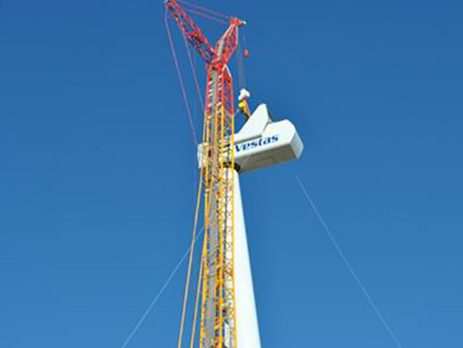Analysis: Middle East showcase facility online at Tafila
Not only is it the country’s first utility-scale wind-power plant and its first privately-owned renewable-energy facility, Tafila is also “the first project-finance renewable deal in Jordan, the first renewable power purchase agreement in Jordan, and the largest privately sponsored wind farm in the Middle East”, according to Sean Miller, commercial manager at Jordan Wind Project Company (JWPC), which developed and owns the plant.
The facility, located in a wind-rich region 180km south of the capital Amman, also features the largest turbines in the Middle East: 38 Vestas V112-3MW machines.
The Danish manufacturer supplied them under a full EPC (engineer, procure and construct) contract, and will provide operations and maintenance services for ten years, extendable to 15. “We are pleased to have pioneered this flourishing industry in Jordan,” said Alain Kerboriou, vice-president of business development for Vestas Mediterranean.
Tafila was also the first wind power plant to be developed under Jordan’s 2010 renewable energy law, which calls for 10% of electricity to come from renewable sources by 2020.
Tafila alone will boost electricity supply by around 3%, and at a price up to 25% cheaper than thermal generation, JWPC said.
The project was completed on budget, at around $287 million. The World Bank’s International Finance Corporation (IFC) put together a debt package of $221 million in association with the European Investment Bank (EIB), the Netherlands Development Finance Company (FMO), the OPEC Fund for International Development, the Europe Arab Bank and Denmark’s export credit fund.
JWPC is a special-purpose vehicle created to develop the Tafila project. It is owned by Euro-Mediterranean long-term infrastructure investment fund InfraMed (50%), Abu Dhabi’s renewables developer Masdar (31%) and EP Global Energy of Cyprus (19%).
The next wind farm to come online in Jordan will be a 66MW facility at Ma’an, featuring Gamesa 2MW turbines, due for completion in early 2016. The country is also pushing ahead with 315MW of private-sector projects that did not have to go through a tender.

